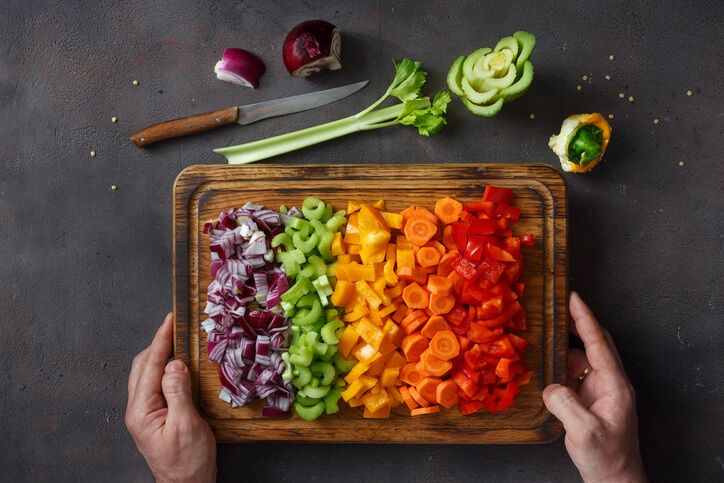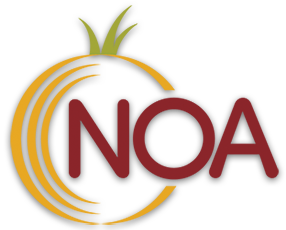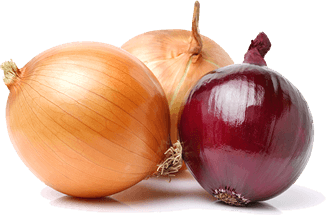We all know a diet high in fruits and vegetables promotes well-being. But when it comes to getting more plants into our diet, there is a disconnect between what we know and what we do. This year, it’s time for embrace the plant-forward movement.
As Produce for Better Health consultant Amy Myrdal Miller MS, RDN, FAND, said in a recent webinar – “We are in a “consumption crisis” when it comes to eating fruits and vegetables.
Get back into the kitchen with plant-forward recipes
The Coronavirus pandemic did not help our diets as many of us turned to comfort foods in response to the stress. After a year of take-out pizza and indulgent home-cooked favorites such as mac and cheese, many of us are ready to adopt a healthy eating plan in 2021. And, maybe, just maybe it will be the year that we connect what we know we should eat with what we actually consume – plant-forward.

“The key is to make it easy and make it delicious,” advises Amy.
In the past, consumers labeled themselves as vegetarians or vegans, the more dietary restricted version of vegetarianism. Today, the focus has shifted away from restrictions to plant-forward eating. Plant-forward eating means prioritizing vegetables, fruits, whole grains, legumes and nuts and seeds in the diet without excluding other food mainstays such as dairy, eggs, seafood, poultry and lean meats. Plant-forward eating is quite literally, putting the plants forward in the diet. “It’s an inclusive style of eating,” says Amy.
Onions help you embrace a healthier eating plan
Crisp, flavorful onions are an important part of plant-forward eating. In addition to layers of flavor, onions also provide health-promoting phytochemicals and nutrients to meals. With only 30 calories per ½ cup serving, onions are sodium, fat and cholesterol free. And, onions provide dietary fiber, vitamin C, vitamin B6, potassium and other key nutrients to the diet.
Onions take a starring role in many plant-forward entrees such as Garden-style Fish with Onions and Bell Peppers, Pasta Primavera with Caramelized Onions and Teriyaki Grilled Skewers with Mango Dipping Sauce.
You can also enhance more plant-based eating by using onions in breakfast, lunches and snacks:
- Substitute onions and mushrooms for one egg or half the cheese in your morning omelet.
- Add onions and vegetables such as lettuce, tomatoes and cucumbers to your sandwich, wrap, or burrito.
- Dip vegetables and whole grain chips into an onion and tomato salsa rather than a high-calorie dressing.
- Customize a personal-sized cheese pizza with onions and other fresh or roasted vegetables.
- Toss pickled onions or caramelized onions into your favorite salad.
As we welcome 2021, let’s bring on the plants – especially onions.




